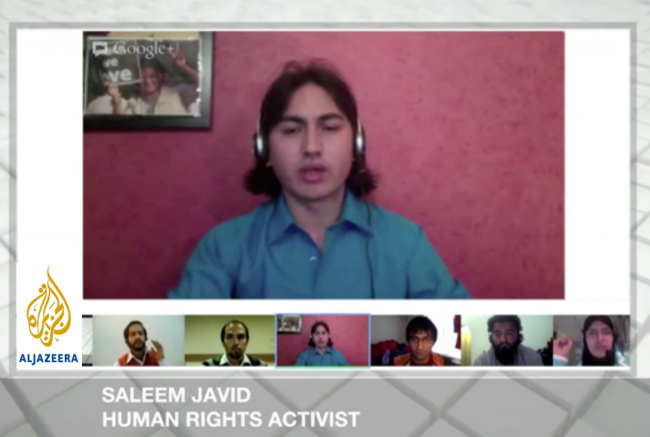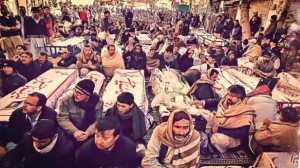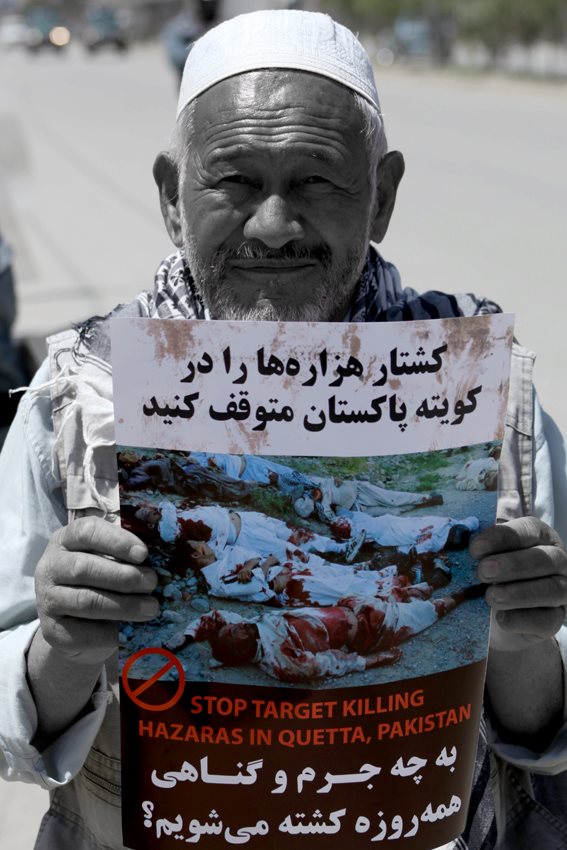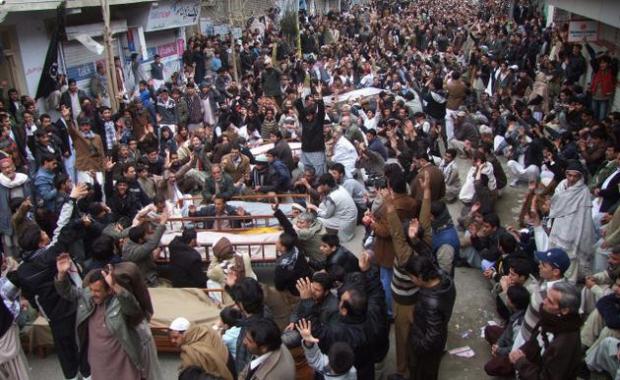The Sacrifice
You’re nine years old. Your Sister calls you little Sis, she has become kinder since Father’s last journey. Your Mother says, ‘He will come home soon,’ whenever you ask about Father. You last saw him a year ago, but recently you’ve been losing hope of his return. What happened to him? You don’t know. At school you’ve overheard stories about Alia’s father and Nasiba’s father which, for a moment, forces you consider the possibility of similar incidents that might have happened to Father. You aren’t sure if mom is hiding the truth, but one thing is certain: your friends are never going to see their fathers. They say their mothers promise their Father will return soon.
You’re not too young to not notice the changes since Father left: your family have changed three neighborhoods since, and your mother has grown her head gray; your sister has left the school to sew clothes with the sewing machine your Mom bought her months after father left, you’ve seen frequent arguments between your mother and your sister over matters that didn’t matter before, and you’ve spotted them sobbing afterwards, your mother didn’t take you shopping on Eid-ul-Fitri despite the promises she had made; she also changed your school reasoning a government school would do you good (but you liked the private one better).
You dream of your father coming back so that everything would go back to normal. You miss him so much. It’s been so long.
So it’s Saturday and the special occasion is on Monday – Eid Al Adha. Because you love animals so much – you remember The Sheep – you’re yet to understand what people celebrate by killing them. You don’t get it how elders bear the sight of an animal dying while you can’t. Perhaps you’re too young for it, you think. Though you’ve seen Abraham, his son Ismail and the Sheep in a portrait that hangs on the wall of the largest room, just next to your grandparents photo frames, at uncle Raza’s, you think the sheep is as much adorable as the one your family used to feed for a while before Father introduced its throat to a huge knife. He had warned you not to get attached to the Animal, but you had spent much time with the sheep so you couldn’t stop the streams of tears for days. You weren’t used to losing friends.
So You, your sister and your mother are strolling down the Main Road stuffed with people, children of your own age carrying shopping bags walking next to their mothers and sisters and Father. Yes Father, you think of the word, and you stare at one of the Fathers holding a child’s hand, showing her something inside the shop. You notice the cheerful faces, notice the smiles. You remember your mother’s face before Father left for the long journey.
You’re holding your mother’s hand, your eyes framing the faces pacing in the opposite direction. All of a Sudden a darker complexion in the crowd strikes you as odd. Your stare at it. The Face stops walking in the middle of the street. You find your attention move from the dark complexion to the right hand where you see the thumb raised slowly, and then pressed back hard to complete the fist.
In a split second, a tiny ball of light explodes to…but it’s already dark.
Minds that have…
Minds that have nothing to confer find little to perceive. Wordsworth
This discussion was aired on Al-Jazeera English after rumors of Hazara youths picking up arms to defend themselves as the government and security forces had blatantly failed to protect them from the Al-Qaeda linked terrorists outfits.
For viewers in countries where Youtube is banned: http://vimeo.com/61081682
Is Pakistan’s government unable to provide security for its own citizens? Lashkar-e-Jhangvi, a banned Pakistani militant group, continues to target the Shia community in Balochistan province. After three deadly bombings this year claimed hundreds of lives, members of Pakistan’s Shia minority are taking up arms to defend themselves. We examine the ongoing violence against the country’s Shia community.
In this episode of The Stream, we speak to:
Mohammad Taqi @mazdaki
Columnist, Daily Times
Major Nadir Ali
Senior leader of Hazara tribe in Pakistan
minoritysupportpakistan.com
Syed Ali Abbas Zaidi @Ali_Abbas_Zaidi
plastictearz.wordpress.com
Pakistan Youth Alliance
Saleem Javid @msaleemjaved
Human rights activist
saleemjavid.wordpress.com
Sajjad Changezi @sajjad_changezi
Activist
Shehroz…
View original post 4 more words
Editor’s Note: This story was originally published as a Cover Story in March issue of Newsline Magazine.
Brain drain from Balochistan: Story of Ali Raza – a Hazara engineer who was hounded out of Pakistan
Ali Raza, like most youth of his community, grew up in Quetta with ambitions of becoming a ‘big man’ and serving his people and country. Despite facing countless hardships, he had finally made it. He was now an engineer – a prestigious profession in Pakistan’s largest but most underdeveloped and poverty-striken province, Balochistan.
Raza, a Shia from Hazara, had no idea that his home province would be overrun by terrorism, militancy, discrimination and hatred. He was probably unaware that the thousands of religious seminaries that were mushrooming across the province were tasked to produce hundreds of non-state actors who could be used in clean-up operations against anybody labelled as ‘impure’ by their external…
View original post 1,415 more words
In the PIQUE, February 2013.
The remarkable protests by the Shia community and its sympathisers may have led to a pyrrhic victory that empowers the agents of destruction
It took almost three days for thousands of Shia protesters, mostly those of Hazaras descent and their supporters from other communities, not to mention political parties across the country, to obligate the federal government to spring into action. And meet the very first demand of bereaved families: send the Nawab Raisani-led provincial government packing.
Though the province is facing a dismal security situation since a decade now, the targeting of members of Shia community, including Hazaras, has escalated in the last five years. According to statistics issued by the home department on January 3, 2013, some 2,100 lives have been lost in 3,232 incidents of violence. Out of 3,232 incidents of firing, bombing and rockets attacks, 478 incidents were aimed…
View original post 1,617 more words
از خواب برخاستم. پیامی از مادرم،عظیمه، را در ایمیلم یافتم. مادرم می نویسد. این بار رویدادی را که در همین اواخر شاهدش بوده نوشته است و امید دارد شما بخوانید و با دیگران در موردش حرف بزنید.
قربانی شدن یک دختر به خصومت های فامیلی
عایشه با فامیل خود در یکی از قریه های جوزجان زنده گی می کرد. در آن قریه، خانهء کاکایش هم بود. یکی از شب ها به خانه کاکایش رفته بود. خانم کاکایش که از اول خصومت داشته با فامیل عایشه، این شرایط را به پسر خود آماده ساخته که به عایشه تجاوز کند. عایشه نامزاد هم دارد. شب پسر خود را به جان دختر روان می کند. دختر بسیار شرمندوک و هیچ از این گپ ها آگاهی ندارد. بسیار وارخطا میشود. باز هم به حق او ظلم شده، کار تمام می شود. مادر پسر برای دختر لباس های خود را می دهد. لباس های او…
View original post 173 more words
Martial Arts expert Hussain Sadiqi was born on 10 march 1979, in the central highlands of Afghanistan Oruzgan Province. He began his Martial Arts training when he was only 9 years old. He attained the top ranking Martial Arts person in Afghanistan in his early young age and become a national champion of Martial Arts at the age of 16. At the age of 18 he became the captain of Afghanistan National Team. In 1999 unfortunately he had to flee Afghanistan because of several years of war and becoming a target due to his high Martial Arts profile.
His journey began in 1999 when left Afghanistan in search of a new homeland at the age of 21 Hussain Sadiqi was considered a Taliban target due to his high martial art’s profile and well known he was easy to be located at the same time his family paid 5000USD to a…
View original post 919 more words
For justice they weep,
the women, men and children
as the dead lie in the open,
as the winter crucifies
the living, as they mourn
the carnage displayed in Quetta
As the children huddle together,
for the warmth, in the biting night
alone, in their grief
alone in their quest,
for justice and for comfort
As they search
children those alive,
in search for the dead,
their friends and the gardens
where they played
only remains the smoke,
the mingled limbs and its horror
the question what do we bury
not this, we remember of them,
the humans that were alive
only the silence of the night,
wrapped up in the bewildering screams,
the whispers of tragedy and its burden
alone they carry, in these streets
the dead and their souls
The repeated patterns,
of decadence and negligence,
the forgotten people,
of Pakistan,
in Quetta and all around
as people…
View original post 244 more words



